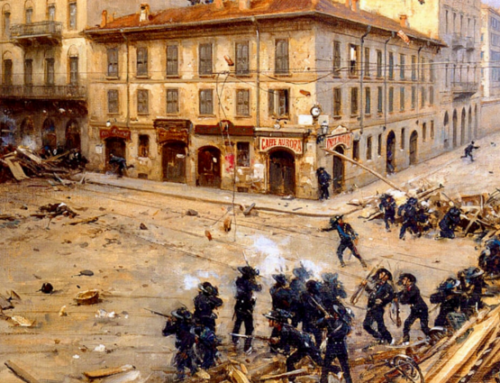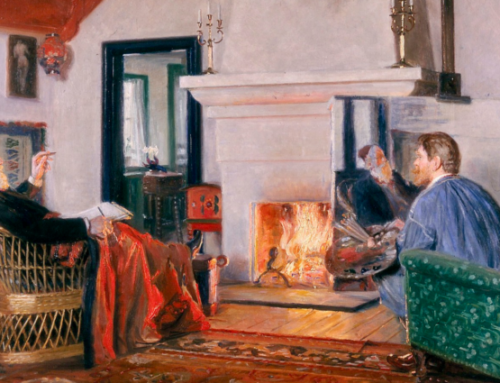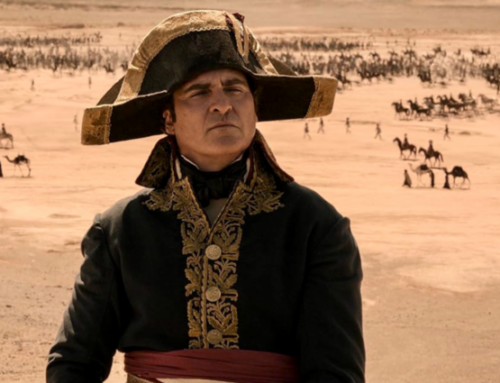More and more Americans, all of them convinced that their side is losing, try to rig the game in their favor. No longer willing to play fair, they want only to win…
 Born on October 4, 1809 and orphaned at the age of twelve, Robert Cumming Schenck overcame his early difficulties to earn a bachelor’s degree at Miami University of Ohio. He subsequently practiced law and participated in the turbulent world of Jacksonian politics. Skeptical of President Jackson, Schenck eventually abandoned the Democratic Party and served as a Whig member of Congress, representing the 3rd Congressional District of Ohio between 1843 and 1851. After a brief diplomatic career as American envoy to Brazil, Schenck returned to the United States, embracing the free-soli policies that Republicans such as Abraham Lincoln espoused. Commissioned a brigadier general in the Union army, one of many so-called political generals whom Lincoln rewarded for their loyalty, Schenck’s military career came to an abrupt end when he was wounded at the First Battle of Bull Run in July 1861. He returned to Congress, where, after the Civil War, he championed Radical Reconstruction. When he lost his bid for re- election in 1870, his old friend and fellow Ohioan, Ulysses S. Grant, appointed him minister to the Court of St. James.
Born on October 4, 1809 and orphaned at the age of twelve, Robert Cumming Schenck overcame his early difficulties to earn a bachelor’s degree at Miami University of Ohio. He subsequently practiced law and participated in the turbulent world of Jacksonian politics. Skeptical of President Jackson, Schenck eventually abandoned the Democratic Party and served as a Whig member of Congress, representing the 3rd Congressional District of Ohio between 1843 and 1851. After a brief diplomatic career as American envoy to Brazil, Schenck returned to the United States, embracing the free-soli policies that Republicans such as Abraham Lincoln espoused. Commissioned a brigadier general in the Union army, one of many so-called political generals whom Lincoln rewarded for their loyalty, Schenck’s military career came to an abrupt end when he was wounded at the First Battle of Bull Run in July 1861. He returned to Congress, where, after the Civil War, he championed Radical Reconstruction. When he lost his bid for re- election in 1870, his old friend and fellow Ohioan, Ulysses S. Grant, appointed him minister to the Court of St. James.
Throughout 1871 and 1872, Schenck busied himself aiding the commission established in Treaty of Washington to adjudicate all contentious issues that remained between Great Britain and the United States. His ministry suffered ignominious finale when Schenck was implicated in the Emma Mine Company scandal, one among the many to disgrace the Grant administration. A member of the board of directors, Schenck had already incurred criticism from the British press for endorsing commercial activities in a country to which he was accredited. Schenck countered that the expenses of his office made such business ventures necessary, since London was inhospitable to a poor republican servant of the American people. When the Emma Mine Company went bankrupt in 1876, furious English investors identified Schenck as the culprit. Vilified in the Times of London and other newspapers, Schenck realized that his days were numbered. The end came when, in February, the House of Representatives enjoined the Foreign Relations Committees to investigate his conduct and to advise the president about how to discipline him. Schenck never formally resigned his post. On March 4, 1876, he quietly boarded a ship and sailed for home.[1]
A minor career as a politician, a soldier, and a diplomat has not bestowed upon Robert Cumming Schenk even the renown of notoriety. He is largely forgotten. Perhaps his most enduring achievement, and one that ought at least to have brought him humble recognition, is a pamphlet of fourteen pages that he wrote in 1872 titled “Draw: Rules for Playing Poker.” Schenk himself disseminated the rumor that he had written it to teach the game to Queen Victoria and members of the royal family. In truth, he wrote it at the request of an English friend at whose country house he often spent weekends. The first effort to codify the rules of draw poker, Schenck’s guide also explained the appeal that the game, and that gambling in general, has long held for the American imagination.
Defined by risk, luck, trickery, deception, and sometimes blatant dishonesty, poker seemed to Schenck an accurate reflection of real life. No one could trust anyone, but had constantly to appraise their characters, intentions, and motives. Nor could a person rely on another to help them. Americans were on their own to make their in the world. Only a fool would harbor sentimental expectations of receiving compassion or kindness. Everyone must seek their own advantage, if need be, at the expense of others. Schenck observed that in poker:
every player is for himself and against all others, and to that end will not let any of his cards be seen, nor betray the value of his hand by drawing or playing out of turn, or by change of countenance, or any other sign. It is a great object to mystify your adversaries. . .To this end it is permitted to chaff or talk nonsense, with a view of misleading your adversaries as to the value of your hand. A skillful player will watch and observe what each player draws, the expression of the face, the circumstances and manner of betting, and judge, or try to judge, of the value of each hand opposed to him.
Acknowledging the importance of fearlessness and deception, Schenck nonetheless emphasized fortitude, composure, and prudence. He concluded his discussion by cautioning against the temptations of chance and the certainty that one can always beat the odds.
But for Schenck, as for many Americans, the allure of poker resided in the mind, not in cards. Success rested not as much on bluff and bluster, he insisted, as on keen psychological awareness and manipulation. Poker, according to Schenk, was essentially a test of nerve, not of intelligence. Chess, another game that has enjoyed a lasting cultural resonance among Americans, combined the psychological acumen of poker with the need for forethought, planning, and strategy. Chess required not only the deception but also the outmaneuvering of an adversary. These intricate movements involved the effort to neutralize and defeat a rival and, more importantly, to impose order on indeterminacy. If poker entailed psychological manipulation, chess occasioned psychological warfare. In his Autobiography, Charles Francis Adams Jr. reflected on how much better chess was suited to American temperament than more conventional forms of education:
What would for me have been the most valuable of courses for purposes of mental training has never been proposed—a course in chess! Gravely to suggest it even would give rise to a look of surprise—probably a smile. Yet what is it but the German Kriegspiel [War Game] adapted to civil life? In playing chess, you must have a defined plan of campaign and follow it up intelligently and consecutively; you must watch your opponent and understand and meet his play. You must measure yourself against him. All this I have been doing after a fashion throughout my life; yet I never went through any special training and preparation for it. A course in chess would have been for me—Kriegspiel. So, also, for others. Why not sometimes educate through amusement?[2]
As both Schenck and Adams intimated, poker and chess, in different ways, exposed the deepest aspirations of the modern American mind: the embrace not of chance, but the need for vigilance and calculation, the desire to make play and life more rational and scientific, the determination to prevail.
In Homo Ludens, his classic study of play, the Dutch historian Johan Huizinga confirmed this judgment, asserting that the quest to rationalize had infected even “non-athletic games where calculation is everything, such as chess and some card-games.”[3] There were, strictly speaking, no longer games of chance. Huizinga argued, in fact, that the crisis of Western civilization had resulted from the gradual but steady elimination of “the play element” from all cultural forms, including religion, law, statecraft, warfare, art, philosophy, and work. Lamenting this “world-wide bastardization of culture,” Huizinga complained that the advance of the scientific mentality, with its “strict demands of accuracy and veracity,” and its increasing “systematization and regimentation,” had left little room for the imaginative disposition to accept, or even to recognize, the fanciful and the indeterminate.[4] Uncertainty and daring, essential characteristics of play, had no place in a world where men sought to master every circumstance, to dominate nature, to control the future, and to eliminate risk. “To dare, to take risks, to bear uncertainty, to endure tension,” Huizinga wrote, “these are the essence of the play spirit.”[5] He concluded that modern games and sports, like many aspects of modern life, had been contaminated by the “fatal shift toward over-seriousness.” At the same time, play had become profane, and consequently no longer had an “organic connection with the structure of society.”[6] The masses, Huzinga regretted, craved instead “trivial recreation and crude sensationalism.” Rather than playing with the joyful abandon of children, they manifested a “blend of adolescence and barbarity” that Huizinga called “puerilism.”[7] “The indispensable qualities of detachment, artlessness, and gladness,” he conceded, “are lost,” ironically contributing both to the chaos and the ruthlessness of modern life.[8]
Shorn of ritual and drama, modern games were becoming empty spectacles. They no longer re-enacted the common life of a people, as they once had done, but offered a lurid diversion from it. Games and sports, in short, became another form of mass entertainment. Writing in the 1930s and 1940s, Huizinga predicted that the dominance of this escapist ethos would produce an emphasis on winning at any cost or, perhaps more accurately, the quest for victory in a desperate effort to avoid defeat. The managerial apparatus would then seek to do everything in its power to eliminate unpredictability from games. The playing field, and especially the practice field, would become laboratories in which experts could analyze and modify all aspects of a game, focusing their attention on the unruly human element. This view of sports assumed that tendencies could be exposed, patterns evaluated, and habits corrected. Accidents need not occur; contingency need not intrude. Science, reason, and technology could discipline and finally subdue human nature. Practice, and then more practice, really would make perfect. Under these conditions, a rival was not the ultimate opponent. The real enemy was chance, that “regrettable impurity” as the poet Marianne Moore described it.[9]
Since the nineteenth century, Americans, both as participants and spectators, have professed to crave action in their games and sports. They are impatient with anything slow and methodical, with anything that takes too much time to unfold. They do value sudden, explosive bursts of action, such as the long pass, the home run, the fast break, the slam dunk, and they have long relished violent physical contact. But what Americans have actually valued is not action but analysis. By restricting the continuous flow of movement, the objective has been to break down actions into their components so that each segment can be investigated in painstaking detail. This process reached its quintessence with the advent of super slow motion instant replay, a technological innovation that enables umpires and referees, coaches and managers, players and fans to dismantle the complexities of motion and speed and thereby to ascertain what really happened. This preference for analysis reflects an even deeper obsession to measure and calculate in an effort to establish a definitive standard of human achievement. The record book has become the source of certainty. Balanced against this view is the equally widespread conviction that all records are provisional because human potential is limitless. Records, like rules, are made to be broken.
Americans have long presumed that in sports, as in life, they cannot and should not trust the evidence of their senses. The hand is quicker than the eye, and sensory perception is inaccurate and unreliable. To cite an obvious recent example, “sabermetrics,” the quantitative analysis of statistics, rests on the assumption that only evaluative and predictive data sets, accumulated over long periods of time, can accurately determine a player’s value and calculate future performance. Experience and judgment count for nothing according to what the historian Jerry Z. Muller has recently called “the tyranny of metrics.”[10] Only a standardized, allegedly objective system of measurement can calculate accomplishment, verify excellence, or even disclose reality. A similar logic, suggesting that reality lies beneath appearances, that the senses deceive, and that perceptions are false, governed modern science, as Galileo made clear in the seventeenth century:
Philosophy is written in this grand book, the universe, which stands continuously open to our gaze. But the book cannot be understood unless one first learns to comprehend the language and read the letters in which it is composed. It is written in the language of mathematics, and its characters are triangles, circles, and other geometrical figures without which it is humanly impossible to understand a single word of it; without these one wanders about in a dark labyrinth.[11]
For Galileo, and for all the rationalists who followed him, concept had supplanted precept and quantity had replaced quality.
The effort to assert control over rivals and circumstances, to abolish contingency and chance, is, for Americans, the real drama concealed in their games and sports. They do not cherish the random, the accidental, the haphazard, the arbitrary, but rather they appeal to system, organization, reason, and science. Nature itself is careless, unpredictable, and contingent, but nature can be vanquished and made to serve human purpose. Americans like to prepare for the unexpected in order to prevent it from ever taking place. Perhaps it is the amorphous freedom that has historically characterized American life, perhaps more darkly it is the growing suspicion that the world is only chance, that explains the current rage for order.
Although not the only people to have done so, Americans have been particularly ingenious in the development and use of equipment, technology, diet, and drugs to enhance athletic performance. In defining the rules of draw poker, Robert Schenck did not endorse cheating as the means to gain such advantages. Americans nevertheless devised myriad ways to do so. In a game defined by trickery—a game in which every aspect was, by definition, inherently a gamble—Americans had a genius for marking the cards, stacking the deck, and secreting useful cards on their persons. When conventional methods went awry, Americans were quick to devise new technologies to facilitate cheating, such as using glass reflectors hidden among the chips, which enabled the double dealer to read the cards of his opponents. They also developed vest, leg, belt, and sleeve holders for cards, some of which were complex gadgets operated by a system of hidden wires, pulleys, springs, and clamps.
Dealing from the bottom of the deck remained in vogue at least until the 1850s, at last falling into disfavor not from moral objections but because the technique was difficult to master and often botched. “Almost any person, with a little practice, can deal from the bottom,” affirmed an expert card player in 1873, “but to perform the feat while several pairs of keen eyes are concentrating their gaze on your fingers and the pack held by them requires an amount of coolness and nerve which is possessed perhaps by not one man in a million.”[12] These and other stratagems constituted perverse displays of freedom that enabled Americans to play the double game they savored: the game within the rules and the game against the rules.
Writing in October 1911, eight years before he exposed the infamous “Black Sox” scandal of 1919, Hugh S. Fullerton detailed the many ways in which baseball players cheated to gain a subtle edge that might mean the difference between victory and defeat. Disappointed that “the morality of the game is not higher,” Fullerton still conceded that “if . . . the ethics of cricket prevailed in baseball, the game would lose much. What would an American ‘fan’ say,” he wondered, “if the first baseman politely sidestepped a runner and allowed the ball to go into the stands rather than handicap him in reaching the base? Or if a shortstop sidestepped to permit a runner to slide to second, rather than blocked him?” Yet, Fullerton remained hopeful that the demeanor of the players had improved and would continue to do so. The public demanded it. “Tricks common fifteen years ago,” he concluded, “would now bring censure upon any player . . .For, after all, the public makes the standard, and even the wildest American `fan’ revolts if his team resorts to unfair and unsportsmanlike tactics.”[13] Americans in the early twentieth century, it seems, had at least a modicum of respect for common decency and fair play.
According to Huizinga, play in and of itself has no moral content; it lies outside the boundaries of “wisdom and folly, and equally outside those of truth and falsehood, good and evil.”[14] By nature, play is enchanting. It casts a magical spell over participants, enabling them to strive and to create within the limits of the rules. They seek to prevail through their own exertions, to achieve something difficult, to succeed. This adversity, this test of prowess, imparts to play an ethical significance, for at a minimum it requires thought, courage, and perseverance. The contest must take place within the rules of the game, which complicate the action. For victory to be meaningful, the possibility of defeat must also be real. Despite the ardor to win, participants in any game must consent to, and abide by, the rules, and triumph or not, only within the confines that the rules impose. A victory achieved by cheating would not only be dishonorable. It would also be artificial, a charade, a farce. To break the rules is to break the spell.
A little more than a century after Hugh Fullerton addressed the questionable morality of baseball, Americans are, or rather have become, inveterate gamblers who do not especially like to gamble. Once willing to play long odds and to take bold risks, they now increasingly do not as much assess as manipulate circumstances to make certain of the outcome. Whatever they may say to the contrary, Americans love to back a sure thing, even though such assurance debases the result. It no longer matters. As Huzinga foresaw, modern sports and games have become pointless spectacles, little more than adjuncts to the most trivial and vulgar forms of mass entertainment, which are intended only to generate revenue, not to exalt the nobility of human endeavor or to affirm the dignity of human struggle. More importantly, play as such is disappearing from all facets of American life and culture. One indication of this pervasive development is that fewer persons today seem able laugh at themselves or to acknowledge the folly of their ways. They wish only to attack and demean all who do not treat them with the respect they assume they deserve as a matter of course, or those with whom they simply disagree. Such appalling incivility has long characterized public discourse in the United States. Meanwhile, growing numbers huddle in their little bands with others very like themselves, promoting intolerance, suspicion, and any illusion that flatters self-love. More and more Americans, all of them convinced that their side is losing, try to rig the game in their favor. No longer willing to play fair, they want only to win. For Americans, after all, regard winning as their unique birthright, even if, when honest means fail them, they must assert it through chicanery, deceit, and fraud.
The Imaginative Conservative applies the principle of appreciation to the discussion of culture and politics—we approach dialogue with magnanimity rather than with mere civility. Will you help us remain a refreshing oasis in the increasingly contentious arena of modern discourse? Please consider donating now.
Notes:
[1] Obituary, New York Times, March 24, 1890.
[2] Charles Francis Adams Jr., Autobiography, 1835-1915 (Boston, 1916), 34.
[3] Johan Huzinga, Homo Ludens: A Study of the Play Element in Culture (Boston, 1955), 198-99.
[4] Ibid., 205, 204, 197. See also, Johan Huzinga, In the Shadow of To-morrow: A Diagnosis of
the Spiritual Distemper of Our Time (London, 1936), 40-50, 175-76.
[5] Ibid., 51. See also 191-92.
[6] Ibid., 51. See also 191-92.
[7] Ibid., 205; for a longer discussion of puerilism, see In the Shadow of To-morrow, 150-62.
[8] Huizinga, In the Shadow of To-morrow, 157.
[9] Marianne Moore, “Tom Fool at Jamaica,” in New Collected Poems, ed. by Heather Cass White
(New York, 2017), 198.
[10] Invented by Bill James, the term “sabermetrics” derives from the acronym SABR, which stands
for the Society for American Baseball Research, founded in 1971. See Jerry Z. Muller, The
Tyranny of Metrics (Princeton, NJ, 2018).
[11] The Assayer, in Discoveries and Opinions of Galileo, trans. by Drake Stillman (New York,
1957), 337-38; see also Edwin Arthur Burtt, The Metaphysical Foundations of Modern Science:
A Historical and Critical Essay (New York, 2003; originally published in 1924), 75.
[12] Quoted in Herbert Asbury, Sucker’s Progress: An Informal History of Gambling in America
(New York, 1938), 36.
[13] Hugh S. Fullerton, “The Right and Wrong of Baseball,” The American Magazine (October
1911), 732.
[14] Huizinga, Homo Ludens, 6.







And in my own home-state of Pennsylvania, thirteen casinos have sued the state for offering certain kinds of games in their daily lottery. “Casinos argue Pennsylvania’s new iLottery games violate law” What have we become? Rigging the games legally? Indeed.